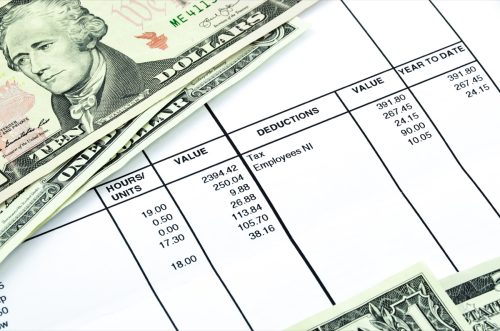25 Best Ways to Save for Retirement

There’s no one-size-fits-all strategy when it comes to saving for retirement. Those who work for global corporations probably have better 401(k) options, while people without children may not have to worry about debt and loans. But whatever the case, it can be a challenge for everyone. In fact, a recent Credit Karma survey reported that nearly one in five Americans aged 59+ don’t have a retirement account—which is why it’s more important than ever to consider the best ways you can save for retirement.
“Think of saving for retirement like gardening,” says James Allen, CPA, CFP, CFEI, founder of Billpin. “You start with a seed (your initial investment), water it regularly (consistent contributions), and over time, it grows into a healthy plant (a substantial retirement fund). The key is patience and consistency. The sooner you plant that seed, the more time it has to grow.”
To start nurturing your retirement funds, keep reading to hear from financial experts about the creative and smart ways you can put money away.
RELATED: The 6 Best Small Towns to Retire In.
25 Best Ways to Save for Retirement
1. Start small.

“It’s never too early to start saving for retirement—the earlier you begin, the more time you have to save,” says Courtney Alev, consumer financial advocate at Credit Karma. And this is why you should start saving for retirement as soon as possible, no matter how little you can set aside.
“Time in the market is more important than trying to time the market!” Alev notes. “Start by creating space in your existing budget for retirement, even if that means you’re starting small at first.”
2. Clear your debts.

This may sound counterintuitive since paying off your debts is not saving, but according to Scott Nelson, founder and personal finance expert at MoneyNerd, it’s a very important step in your retirement journey.
“Debt with large interest rates will eat away at any money you have saved, which can then impact any retirement funding you have previously accumulated,” he explains. “Additionally, outstanding debt and high-interest rates will also cause financial stress, which will impact the relaxation involved with retirement.”
3. Stash away your raise or bonus.

If you’re looking to save more for retirement but are still moving up the corporate ladder, consumer expert Andrea Woroch recommends setting aside any bonuses or raises.
“You’re already used to living on what you make and won’t miss the extra. Taking on that extra income could lead to lifestyle creep, in which you spend more when you make more, and that’s just a waste of money!”
4. Take advantage of employer-sponsored retirement plans.

If your employer offers a 401(k) or 403(b)—the latter is for non-profits—Young Pham, a financial advisor and investment analyst affiliated with BizReport, urges taking advantage of it.
“What makes these plans very effective is that they often come with employer-matching contributions,” he explains. “For example, [you] would get a situation where for every $100 you save in the retirement account, the employer will match it and offer you an extra $100 free of charge. This creates the potential to maximize your savings without necessarily sacrificing too much of your income today.”
5. Set up Individual Retirement Accounts (IRAs).

If you’re not lucky enough to have a 401(k) or 403(b) through your employer, Pham recommends opening either a Traditional IRA or a Roth IRA.
“Each of these options has its own set of advantages and disadvantages, as well as tax benefits. Your choice will be determined by your current and projected future tax situation,” he shares. “Traditional IRAs provide tax-deferred growth, while Roth IRAs provide tax-free withdrawals in retirement.”
RELATED: 6 Tax Filing Tips for Retirees, According to Finance Experts.
6. Automate a percentage of your paychecks for your retirement fund.

When given the option between putting away $100 for retirement or going out to dinner, it can be all too easy to think short-term and choose the latter. But if that money is being automatically deducted from your account, the temptation is gone.
“Some companies offer the option to set aside a set amount or percentage of each paycheck to automatically go into your 401(k) or retirement fund, which can help you save without having to do any of the manual work to transfer between accounts,” Alev explains.
“Pre-tax retirement accounts also have tax advantages that can help you build more wealth in the long run. Challenge yourself to increase the percentage you contribute each year,” she adds.
7. Max out contributions to your retirement accounts.

Both a 401(k) and an IRA have a maximum contribution amount, meaning if you haven’t contributed that much by the end of the year, you can add the balance as a lump sum—and if you’re in the position to do so, Jen Reid, financial planner and founder of Base Financial Planning, says it’s advisable.
“You can now contribute more to your 401k plan and your IRA or Roth IRA accounts, so I highly recommend people take advantage of that (total is $29,000: $22,500 for the 401k and $6,500 for the IRAs per individual),” she explains.
8. Don’t forget about an HSA.

A Health Savings Account (HSA) is “a type of savings account that lets you set aside money on a pre-tax basis to pay for qualified medical expenses,” explains HealthCare.gov.
As Health Equity further breaks down, both a 401(k) and an HSA allow you to make pre-tax contributions: “But only an HSA lets you take tax-free distributions for qualified medical expenses. After age 65 you can use your health savings account for any expense, you’ll simply pay ordinary income taxes—just like a 401(k).”
For this reason, Reid also recommends maxing out your contributions here if you’re able to. “The contribution limits for 2023 are $3,850 for an individual and $7,750 for a family plan,” she says.
9. And don’t gloss over 529 Plans if you have kids.

“A 529 is a tax-advantaged college savings plan that can be used to pay for a beneficiary’s qualified education expenses, such as tuition or books,” explains NerdWallet. There are two types of these plans—529 college savings plans and 529 prepaid plans.
The former is more common, as investments in the plan accumulate tax-free and can be “withdrawn tax-free for educational expenses such as tuition, room and board, and required textbooks,” NerdWallet explains. Prepaid plans “let you prepay part or all of an in-state public tuition, locking in the tuition at time of payment.”
But as Forbes explains, some recent changes with these plans make them a smart component of retirement planning. Previously, “any money not used for qualified higher education costs was taxed and penalized.” Starting in 2024, though, any remaining funds in 529 plans can be rolled over into a Roth IRA tax-free. Of course, there are certain stipulations, so be sure to consult your financial advisor.
10. Consider target-date retirement funds.

All the options for a retirement fund can get pretty overwhelming, which is why Alev suggests opting for a target-date retirement fund.
“Many brokerages now offer low-cost, target-date funds that rebalance as you get closer to retirement,” she explains. “These eliminate the need for you to set up your own diversified portfolio and rebalance as you get closer to your target retirement date, saving you time and effort.”
RELATED: 7 Budget Hacks For Retirement, According to Financial Experts.
11. Save some, invest more.

“Find a balance in your budget that allows you to start investing more than you are saving,” recommends Kelly Ann Winget, alternative investments expert and CEO, founder, and fund manager at Alternative Wealth Partners. “Your cash loses value every day, especially in the high-inflation world we are living in today.”
12. Choose a high-yield savings account.

“Depending on how long you have until retirement, most of your retirement funds should be in specific retirement accounts, like 401(k)s or IRAs, that have tax advantages,” notes Alev. But if you have additional savings accounts, you’ll want to make sure that money is earning interest.
“One example is a high-yield savings account … where your money can earn interest and grow over time,” she says.
13. Consider compound investments.

Compound investing is a reinvestment pool that Pham highly recommends for retirement savings.
“It works by reinvesting your investment earnings, which allows your money to grow exponentially over time,” he explains. “For example, if you invest $100 per month and earn a 7 percent annual return, your investment will be worth over $100,000 in 30 years. This is because your investment earnings will also earn interest, which will, in turn, earn interest, and so on.”
If you decide to go this route, Pham recommends starting early (“Even small amounts invested regularly can add up over time”), choosing a diversified portfolio to reduce your risk, and reinvesting your earnings.
14. Figure out your tax and estate plan.

Winget says figuring out your tax and estate plan is an important part of retirement saving. “Being set up structurally (having a trust, estate plan, holding company, life insurance, etc.) is the most important part of all of this,” she notes.
“Paying 20-40 percent+ of your income in taxes every year eats away at what you could be putting into savings, investments, and retirement,” Winget adds. “Either learn the tax code or hire a professional who can understand your specific situation and can strategically structure your finances. This is before you involve a financial advisor. Some firms offer both financial and tax advice.”
15. Save your cash back.

“If you’re good at paying off your
card in full, look into getting a new rewards card that gives you more cash back for each purchase, and the money you earn on purchases you make anyway, [put] away [for] retirement,” Woroch recommends.She continues, “To maximize rewards, analyze your purchasing habits and find a rewards card that matches your spending style. Or, opt for a flat-rate cash-back card that can give you more cash in your pocket, especially if you’re using it to pay bills like medical bills or utilities.”
“For example, the Bread Cashback American Express card offers an unlimited 2 percent back on every purchase or payment with the card and no spending limit or store restrictions,” Woroch adds. “Therefore, you can turn any purchase into free money to save towards retirement.”
RELATED: 5 Common Money Mistakes You Could Be Making Daily, According to Financial Experts.
16. Use cashback tools.

Credit cards aren’t the only way to get cash back. Woroch advises using cash-back shopping tools, too.
“For instance, you can earn cash back when shopping online via sites like CouponCabin to earn up to 10 percent from thousands of retailers and businesses, from clothing and tech to grocery and takeout orders to travel bookings,” she shares. “You can even turn receipts into cash back by using a free rewards app like Fetch. Put the money you earn on your everyday purchases away to retirement to watch your savings build effortlessly.”
17. Hack monthly bills.

That streaming service you never watch, the news subscription you forgot to cancel—all those small monthly bills can really add up, which is why Woroch recommends reviewing your monthly expenses for potential savings.
“Begin by negotiating rates with current providers, canceling unused subscriptions, bundling insurance coverage or increasing your deductibles for up to 20 percent savings on premiums, unplugging unused gadgets for up to 10 percent reduction in energy costs, and looking into cheaper providers, especially for data and wireless plans,” she says.
When it comes to this last point, Woroch specifically suggests switching to an online-only wireless carrier like Mint Mobile.
“It can help you cut wireless spending down significantly as they offer plans with talk, text, and data for just $15 per month or unlimited data for $30 a month,” she says. “Considering that studies show 90 percent of mobile users waste money on unlimited data, look at your bill and lower your plan based on your actual usage.”
18. Take advantage of senior discounts.

Many stores offer senior discounts, and it’d be almost silly not to take advantage of these savings on items you’d be buying anyway.
For example, Kohl’s gives a 15 percent discount to those 60 and older every Wednesday, and Walgreens offers a discount of 20 percent online and in-store (the latter is just once a month) for those 55 and older.
19. Join AARP.

Another easy way to save on everyday purchases is by joining AARP once you turn 50. The membership (which costs $12 your first year and $16 each year after) gets you free tax preparation services, a prescription discount card, and a complimentary streaming entertainment service, among other perks.
20. Rent your stuff.

One creative way to earn some additional savings is by renting your home or vehicle when you’re not using it.
“You can rent a spare bedroom to travelers on Airbnb or VRBO to help cover the bills so you have extra money to put towards savings, or rent out your whole home for events and corporate meetings on PeerSpace,” suggests Woroch.
“Other things you can rent: your car when you aren’t using it via Getaround, your parking spot via SpotHero (great for someone who lives near a popular attraction or close to city center for travelers) … and even your swimming pool via Swimply,” she adds.
For more financial advice delivered straight to your inbox, sign up for our daily newsletter.
21. Get a side hustle.

Have some extra time? Or have a skillset you’ve never put to use? A little side hustle can go a long way toward saving for retirement.
“There are plenty of lucrative side hustles you can do in your spare time and some from home,” shares Woroch. “For instance, if you love gardening, look for opportunities to help other people with yard work through sites like Taskrabbit. If you love dogs, you can get paid to pet sit and make up to $1,000 per month via Rover.”
“You can also earn up to $50 per hour by offering virtual tutoring on subjects that excite you via Varsity Tutors,” she adds. “Or, teach virtual lessons on something you’re a pro at like guitar lessons via Lesson Face.”
22. Sell your wares.

If you’re the creative type, Allen suggests selling what you make.
“For instance, if you’re a photography enthusiast, why not sell your photos online? Or if you love knitting, consider selling your creations on Etsy. This approach not only provides an additional source of income but also makes the process of saving more enjoyable and less of a chore,” he points out.
23. Conduct self-audits.

Sebastian Jania, owner of real estate investment company Ontario Property Buyers, says that no matter how you’re saving, it’s still wise to check in with yourself periodically. “It’s important to do frequent self-audits to make sure one’s expenses do not go up to ensure that savings are maximized.”
“One of the best ways to do this is for one to ask themselves, ‘If I bought this today or paid for this today knowing that this money would be worth more in the future if it were invested would I still want to pay for this today?'” he shares.
24. Be smart about your life insurance policy.

Sanju Subnani, a financial planning and investing expert with JustAnswer, previously told Best Life that it’s advisable to start contributing to a cash-value whole life insurance policy as early as possible.
“Having cash value whole life in addition to stock investments allows investors to withdraw more income during retirement when the stock market is down,” Sanju says. “Starting whole life insurance now gives time for the cash value to build up, meaning retirement can arrive sooner than later.”
25. Speak to a financial advisor.

If you’re still feeling overwhelmed or unsure of how to start saving for retirement, Nelson strongly urges speaking with a financial advisor.
“They will assess your individual situation, taking into account current wages and outstanding debts, and guide you to the most effective money-saving strategies,” he shares.
Best Life offers the most up-to-date financial information from top experts and the latest news and research, but our content is not meant to be a substitute for professional guidance. When it comes to the money you’re spending, saving, or investing, always consult your financial advisor directly.